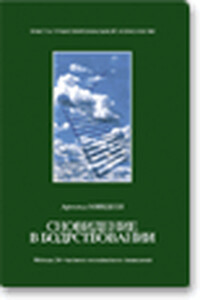(1985). Sex differences in the intimacy of social interaction: further examination of potential explanations.Journal of Personality and Social Psychology, 48, 1204–1211.
Riggio, R. E. (1986). Assessment of basic social skills. Journal of Personality and Social Psychology, 51, 649–660.
Riggio, R. E. & Friedman, H. S. (1983). Individual differences and cues to deception. Journal of Personality and Social Psychology, 45, 899–915.
Riggio, R. E., Tucker, J. & Throckmorton, B. (1988). Social skills and deception ability. Personality and Social Psychology Bulletin, 13, 568–511.
Roberts, K. P., Lamb, M. E., Zale.J. L. & Randall, D. W. (1998). Qualitative differences in children's accounts of confirmed and unconfirmed incidents of sexual abuse. Paper presented at the biennial meeting of the American Psychology-Law Society, Redondo Beach, March 1998.
Robinson, W. P., Shepherd, A. & Heywood, J. (1998). Truth, equivocation/ concealment, and lies in job applications and doctor-patient communication. Journal of Language and Social Psychology, 11, 149–164.
Rockwell, P., Buller, D. B. & Burgoon.J. K. (1991). Measurement of deceptive voices: comparing acoustic and perceptual data. Applied Psycholinguistics, 18, 411–484.
Roediger, H. L. (1996). Memory illusions. Journal of Memory and Language, 35,16100.
Rosenfeld, P. J. (1995). Alternative views of Bashore and Rapp's (1993) alternative to traditional polygraphy: a critique. Psychological Bulletin, 111, 159–166.
Rosenfeld, P.J., Angell, A. Johnson, M. M. & QianJ. (1991). An ERP-based, control-question lie detector analog: algorithms for discriminating effects within individuals' average waveforms. Psychophysiology, 28, 319–335.
Rosenfeld, J. P., Reinhart, A. M., Bhatt, M., Ellwanger, J., Gora, K., Sekera, M. & Sweet, J. (1998). P300 correlates of simulated malingered amnesia in amatching-to-sample task: topographic analyses of deception versus truthtelling responses. International Journal of Psychophysiology, 28, 233–241.
Rosenthal, R. & DePaulo, В. M. (1919). Sex differences in eavesdropping on nonverbal cues. Journal of Personality and Social Psychology, 31, 213–285.
Rosenthal, R. & Rubin, D. B. (1918). Interpersonal expectancy effects: the first 345 studies. Behavioral and Brain Sciences, 3, 311–415.
Rowatt, W. C., Cunningham, M. R. & Druen, P. A. (1998). Deception to get a date. Personality and Social Psychology Bulletin, 2A, 1228–1242.
Rozelle, R. M. & Baxter, J. С (1915). Impression formation and danger recognition in experienced police officers. Journal of Social Psychology, 96, 53–63.
Rozelle, R. M. & Baxter, J. С (1918). The interpretation of nonverbal behavior in a role-defined interaction sequence: the police-citizen encounter.Environmental Psychology and Nonverbal Behavior, 2,161–181.
Ruby, С L. & Brigham, J. C. (1991). The usefulness of the criteria-based content analysis technique in distinguishing between truthful and fabricated allegations. Psychology, Public Policy, and Law, 3, 105–131.
Ruby, C. L. & Brigham, J. C. (1998). Can Criteria-Based Content Analysis distinguish between true and false statements of African-American speakers? Law and Human Behavior, 22,369–388.
Ruva, C. & Bryant, J. B. (1998). The impact of age, speech style, and question form on perceptions of witness credibility and trial outcome. Paper presented at the AP-LS Biennial Conference, Redondo Beach, March 1998.
Saarni, C. (1984). An observational study of children's attempts to monitor their expressive behavior. Child Development, 55,1504–1513.
Saxe, L. (1991). Science and the TCB polygraph: a theoretical critique.Integrative Physiological and Behavioral Science, 26, 223–231.
Saxe, L. (1994). Detection of deception: polygraph and integrity tests.Current Directions in Psychological Science, 3, 69–13.
Schneider, S. M. & Kintz, B. L. (1911). The effect of lying upon foot and leg movement. Bulletin of the Psychonomic Society, 10, 451–453.
Schooler, J. W., Gerhard, D. & Loftus, E. F. (1986). Qualities of the unreal.Journal of Experimental Psychology: Learning, Memory, and Cognition,

